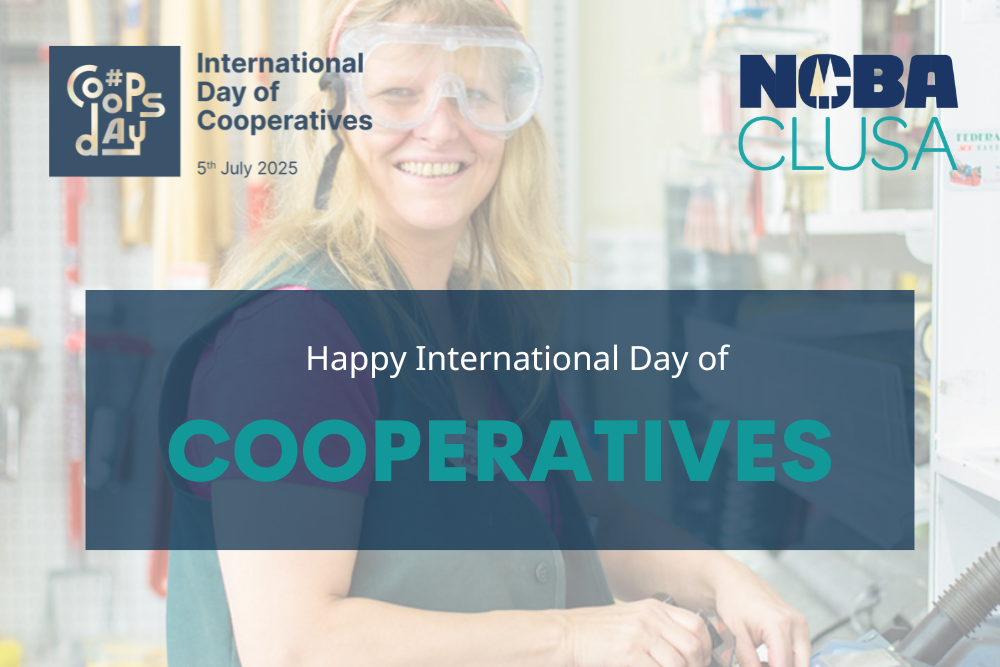Ahead of the 2016 Cooperative Professionals Conference (CPC) in Miami, Florida, from September 19 – 21, NCBA CLUSA spoke with key presenters to find out what drew them to the cooperative business model and how the growing CPC network is filling a critical gap in providing accounting and legal resources for the burgeoning cooperative sector in the U.S.
This week we sat down with Therese Tuttle, who specializes in representing California consumer, agriculture and worker cooperatives at Tuttle Law Group. In 2000, she founded Tuttle & Van Knonynenburg, LLP, a firm focused on cooperative and agricultural law, with her law partner Frank Van Konynenburg. In 2001, that firm successfully defended the 400 members of Tri Valley Growers, a processing cooperative, from claims of creditors in the cooperative’s bankruptcy. In 2013, Tuttle drafted amendments to California’s cooperative law that enabled preferred-share financing and capitalization of cooperatives. She is also a recipient of the U.S. Department of Agriculture’s “Great Cooperator” Award.
NCBA CLUSA: Tell us how you first began serving co-op businesses and what drew you to this business model.
Therese Tuttle: Actually, I wanted to be a farmer, and it was my interest in figuring out how to make a living as a farmer that inspired my interest in agricultural cooperatives. At UCLA I took a philosophy class where we read John Rawls’ Justice as Fairness. I was intrigued with his efforts to describe a democratic political structure, accommodating human nature in political society over time. I also read John K. Galbraith’s American Capitalism, which develops the idea of countervailing market power and describes cooperatives as a means of achieving such power. My great-grandfather and grandfather had both worked as attorneys for agriculture cooperatives in California and although I never met my great-grandfather, I had many political discussions with my grandfather about the role of cooperatives in society. After law school I worked in Washington D.C., doing lobbying work on behalf of some large California agricultural cooperatives, and then began working for National Farmers Union as director of co-op development. I have been in private practice in California for 17 years, working with farmers and food cooperatives, more recently with worker and other types of cooperatives. I still hope to farm someday—probably as a member of a cooperative.
NCBA CLUSA: What are your goals for this year’s Cooperative Professionals Conference?
Tuttle: I attended last year’s conference and I was so inspired by all the good and important work that others are doing around the county. I am really looking forward to reconnecting with some of those people and learning about new developments in the cooperative movement, cooperative law and accounting. It is so important to support each other in this field; as it doesn’t necessarily fit into a regular career paradigm.
NCBA CLUSA: How do you see the Co-op Professionals Conference expanding in the future?
Tuttle: I really like the scale of the conference, because there is a lot of space and time for having conversations and meeting people. The participants are all enthusiastic and knowledgeable, and a smaller scale conference makes everyone accessible. On the other hand, there are many people—especially on the west coast—that it would be great to involve. Maybe a west coast conference in the future?
NCBA CLUSA: What is needed to attract more attorneys and accountants to serve the unique needs of cooperative businesses?
Tuttle: We all need to work to support our existing cooperative clients and promote their successes. Sometimes when a cooperative fails, people believe that it is because it is a cooperative. As a result, cooperatives’ failures can be more visible than other businesses’ failures. This is one reason why cooperative education is really important. There should be a cooperative curriculum for K-12 and then college and professional level courses. Cooperative accounting and taxation can seem very arcane. More education in this area could remove some of the anxiety about getting involved in this area.


